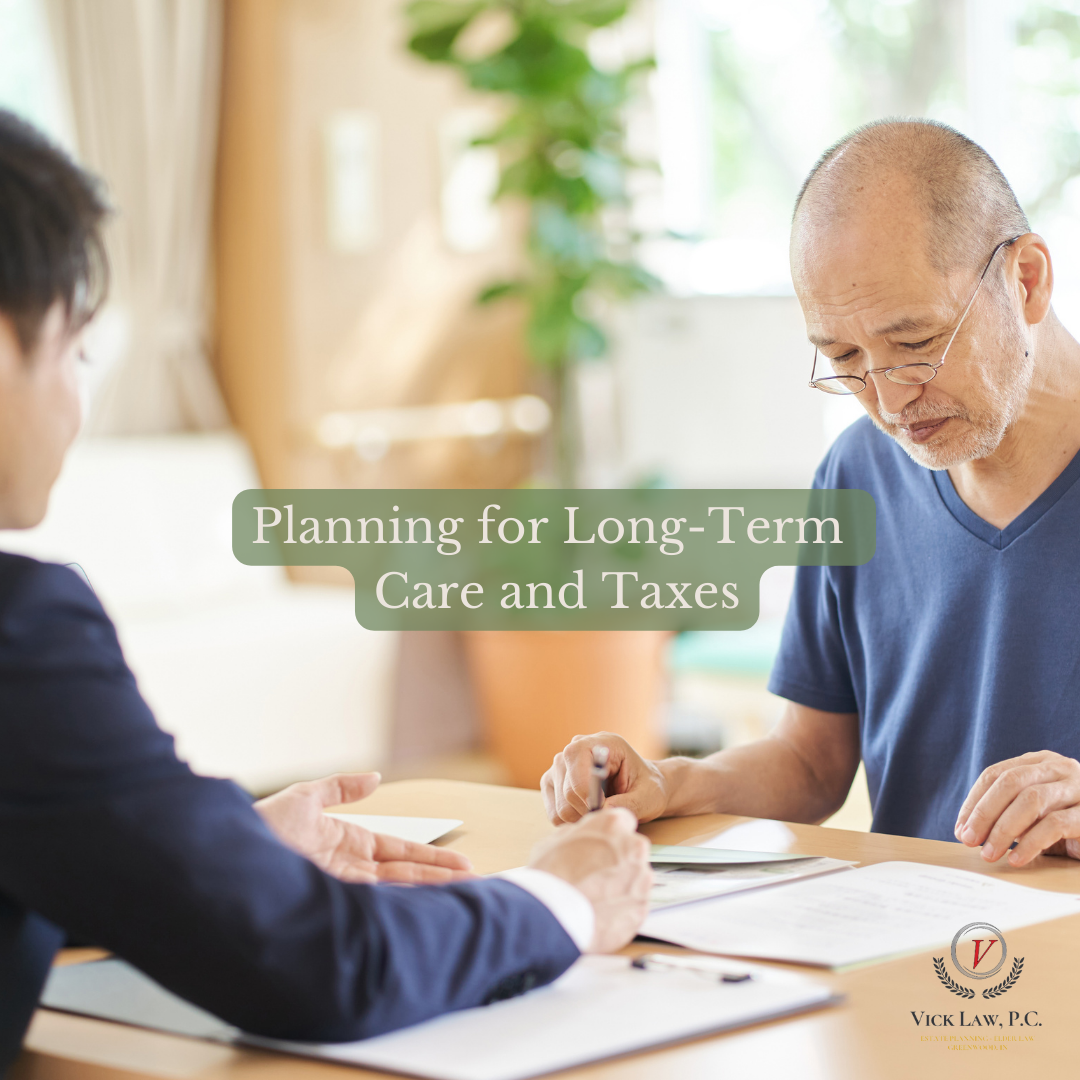Planning for long-term care and taxes can be critical to your estate plan. Retirement brings about several risks including longevity, market risk and inflation, paired with two of the most common concerns of later life: the costs of long-term care and how to reduce or avoid taxes during retirement and upon transferring assets to heirs. These concerns are addressed in a recent article from Kiplinger, “Long-Term Care Planning vs. Taxes: Finding a Healthy Balance.”
- Long-term Care Insurance (LTC) is recommended for individuals and families under age 65 with investable assets ranging from $1.5 million to $3 million. The limits on net worth and age are based on striking a balance between the coverage cost and what benefits would be received. The initial goal of LTC insurance to finance the cost of assisted living and skilled medical care has now become more of a hedge against the final bill for LTC than total coverage of expenses. With the chance of needing to live in an elder care facility and the average stay of three or more years, plus the cost of skilled care, this is now a major reason for people declaring bankruptcy during retirement. LTC insurance was sold as protection, but as life expectancies with medical conditions have increased, so has the cost of care. As a result, premiums have skyrocketed, and benefits have been reduced.
- Universal Life Insurance with Accelerated Benefit Riders is an option better suited for people up to age 70 with $3 million to $5 million in investable assets. The premiums are high, but the policies act as a multi-use tool, providing coverage and the opportunity for wealth leveraging for the next generation.
- Accelerated Benefit Riders (ABRs) are a special kind of life insurance rider triggered by medical conditions allowing the death benefit of the policy to be advanced to the owner during their lifetime, often up to 100% of the policy’s face value, for funding an extended stay in an assisted living or skilled care facility.
- Asset Protection Trust Planning is the focus for most Americans with a net worth of less than $2 million. This is where the pressure of the costs for skilled nursing care is felt more intensely. Those with fewer assets have more to lose and need protection more than the wealthy.
Self-settled wholly discretionary grantor trusts, which are irrevocable, are used to house certain assets Medicaid would expect families to liquidate or spend before approving benefits to cover the bulk of the cost. Certain provisions of irrevocable trusts can be changed depending on the state of residence, such as who the trustee is and who the beneficiaries are.
The trustee should not be one of the grantors of the trust, and there is a five-year look-back on the trust’s funding. For example, if a grantor needs long-term care five years after assets were moved into the trust’s name, other assets will be needed to pay for the care.
Families are encouraged to plan early—ideally, just before or in the early years of retirement. The needs of the family drive which assets are placed in the trust. However, not everything goes. For instance, placing IRAs or other qualified accounts into an irrevocable trust would be unwise because this would be a fully taxable event. Roth IRAs may be placed in a trust. However, then they would lose their Roth status.
Careful planning with an experienced attorney, such as Vick Law, P.C., can establish a balance between maximizing protection and minimizing taxes. Book a call with Thomas A. Vick today to update or create an estate plan that takes long-term care into consideration.
Reference: Kiplinger (March 20, 2023) “Long-Term Care Planning vs. Taxes: Finding a Healthy Balance”

